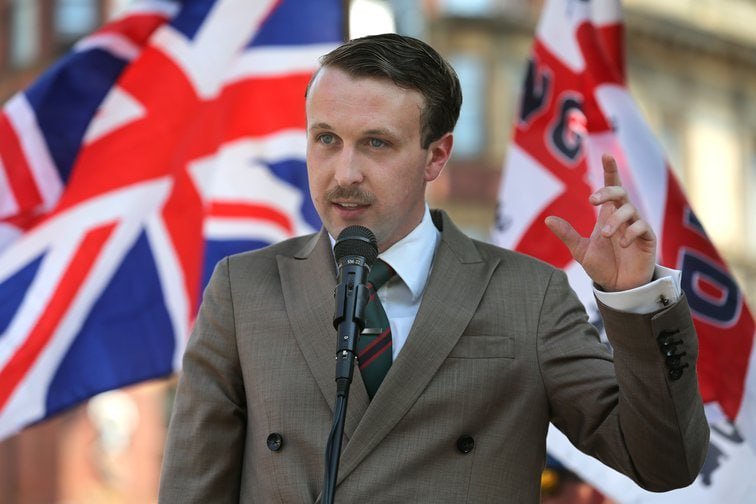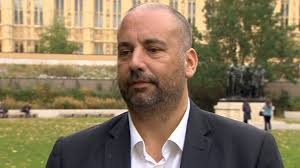
By Paul Gale
Alek Yerbury, founder and leader of the National Rebirth Party, and the chap with a penchant for pencil moustaches and military-style great coats, has again put pen to paper to offer a comment for the Searchlight website.
Now, it has to be said that Mr Yerbury is, by a considerable distance, the most courteous nazi we have had contact with, not dealing (thus far at least) in gratuitous abuse. So, we have informed him, equally courteously, that he can write all the comments he likes but we won’t be publishing them. It’s been our policy for almost 50 years not to offer a platform to those of his ilk, and we have no intention of changing it now.
However, we do feel we had to share a bit of his offering, given the light it sheds on the divides increasingly opening up between himself and others on the far right with whom he was not so long ago associated.
Yerbury is responding to our story about a recent, rather unsavoury, guest on Patriotic Alternative leader Mark Collett’s online talk show. The guest in question was Jeremy MacKenzie, a far-right activist, ex-military veteran and gun-nut who, on his own podcast, had publicly discussed raping the wife of the Canadian Conservative Party leader.
According to Yerbury: “This is what happens when people live in echo chambers. The worst aspects of their personality just get inflamed and reinforced”.
Note that rather pointed dig: “…the worst aspects of their personalities…” According to Yerbury, what he calls “enclave groups” tend to produce “extremely asocial mentalities”. Altogether, a not very flattering appraisal of the Mark Collett psyche, it has to be said.
Virtually alone on the extreme right, Yerbury is advocating complete abstention from the general election: don’t vote, don’t even waste your time spoiling you ballot paper. “The NRP” he says, “will go on the offensive when it is organised and equipped to do so, and therefore when it is organised and equipped to succeed, and not before”.
Yerbury is obsessive about the far right starting to talk about strategy rather than what divides it ideologically. And whilst he has nothing but total contempt for Farage and Reform, he also has little time for some of his even further right rivals. So now, like some Prussian aristo dusting off his duelling pistols, he has been using David Clews’s Unity News Network to challenge leaders of other nationalist parties to public debate where he intends to attack their record of strategic failure (it has to be said, he has a bit of a point in this respect…) and offer his own 20-point master plan for Britain’s future greatness.
Although the challenge is general, the person he has in his sights and whom he was trying to strong arm into a public showdown is Collett, whose PA represents the most immediately winnable pool of potential recruits to the National Rebirth Party. Collett, backed into a corner, has reluctantly agreed but is very unhappy, feeling he has no option but to pick up Yerbury’s glove or lose considerable face.
The PA man is not relishing it, though. He knows he has walked into a trap set specifically with him in mind.
Comments are closed








